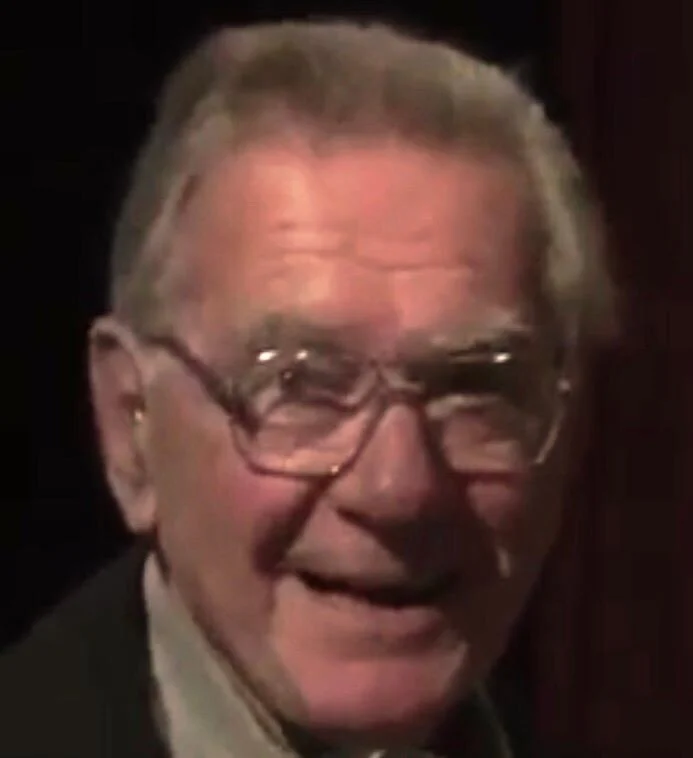Melvin Mandel was the first president of PCFA and served on the PCFA Board of Directors until he died. He was a model of active, consistent participation in the UCLA teaching program. Without his leadership, it is unlikely that any of the myriad contributions that PCFA makes to the training of psychiatric residents, child psychiatry fellows and medical students would have come to pass. He was a mentor to many younger colleagues, including at least three who went on to become PCFA presidents.
On October 29, 2011 Dr. Mandel became the first recipient of the Melvin Mandel Award at PCFA’s Annual Meeting. That award will carry his name in perpetuity to exemplify the kind of excellence towards which he guided the UCLA psychiatric clinical faculty and its trainees in his six decades here.
• Education: BS 1943, MD 1945, Tulane University
• Psychiatric residency: 1948-1950, University of Buffalo
• Psychoanalytic training: 1950-1951 Pontiac State Hospital
• UCLA Faculty: 1953-2018
UCLA ACTIVITIES:
Substantial and consistent teaching and administrative roles. About 30 years ago, Dr. Mandel worked with Drs. Milton Greenblatt and Fritz Redlich at VA Hospitals Sepulveda and Brentwood, heading the psychiatric rehabilitation service and conducting seminars and rounds. He also conducted a lecture series for all UCLA residents in conjunction with Dr. Steve Marmer with the participation of Dr. Robert Stoller and other UCLA psychiatric faculty.
OTHER ACTIVITIES:
• APA: Dr. Mandel served continuously in local psychiatric organizations. For example, as president of the Southern California Psychiatric Society, he was responsible for the modernization of many SCPS practices.
• PSYCHOANALYTIC : Dr. Mandel represented the educational component of the local analytic society at national meetings of the American Psychoanalytic Association. He was also an editor and member of the editorial board of The American Psychoanalyst.
In Remembrance of Mel Mandel
by J. Mark Thompson
Mel was a remarkable individual who had many passions and a gentle spirit. He had interests, many, many interests- psychiatric administration and education, wood working, backpacking, Los Angeles politics, psychoanalytic education and leadership, gardening, and of course the Clinical Faculty. For me he was always an optimist, a listener, a supporter and certainly someone with a wealth of opinions and suggestions. He was a persistent antidote to my own doubts about the viability of the early Clinical Faculty Association. Mel was a visionary who with a few other hardy souls developed the philosophy and goals for the initial CFA. His’s vision for the CFA was fashioned by his keen awareness that the traditions of psychiatry that he trained in and valued were rapidly changing in the face of the major biologic discoveries and pharmacologic interventions that arose during the late seventies and eighties. With concern, Mel anticipated the potential demise of the therapist psychiatrist who had to deal with both the innovations within the field and ultimately the radical restructuring of insurance compensation and the rise of numerous competing psychotherapy “providers.” He and of course many others worried that the training of the wise and clinically astute clinician, where one who could integrate awareness of developmental and current psychological experience, and also neuro-biologic knowledge, would suffer. From this the desire to maintain and nurture the clinical and human aspect of what we do, the Clinical Faculty Associationwas born and grew. Programs and a host of activities were constructed to facilitate the development of psychiatric trainees, and to compensate for perceived voids in the current training of psychotherapy skills and other psychological perspectives beyond psychopharmacologic training. While never complete, this vision has succeeded remarkably well and its enduring programs provide an ongoing tribute to Mel.
As I have thought of Mel beyond the CFA, I realized that through out my own psychiatric career, he was always just there. Every meeting, every event and often enough in some hallway or parking lot I ran into Mel. He taught a year long interview course in my first year of psychiatric residency. Then, shortly after he and Steve Marmer taught my first course on psychodynamic principles and therapy, a seminar where Mel’s love for the field was evident and inspiring. Later he taught at the Los Angles Psychoanalytic and then for many years he was a member of the CFA board where he was constantly supporting. Later still as I was immersed in the merger between the Southern California Psychoanalytic Institute and the Los Angeles Psychoanalytic Institute, he again was a voice of reason and at the same time a tireless advocate for the “reunification” of the two Institutes to make the one New Center for Psychoanalysis. From the 1970s onward he was invest in the merger of the two Institutes, a process he referred to as the “reunification.” He was his typical ever-steady spirit and offered a background of goodwill and acceptance in this task.
Mel was an amalgam of energy, easily shared opinions, inspiration, and capacity to listen. He believed in the importance of emotion - finding it, being with and speaking to it both in clinical work and groups. He knew the power of personal relationships and the power of a human connection to change another person’s life.

